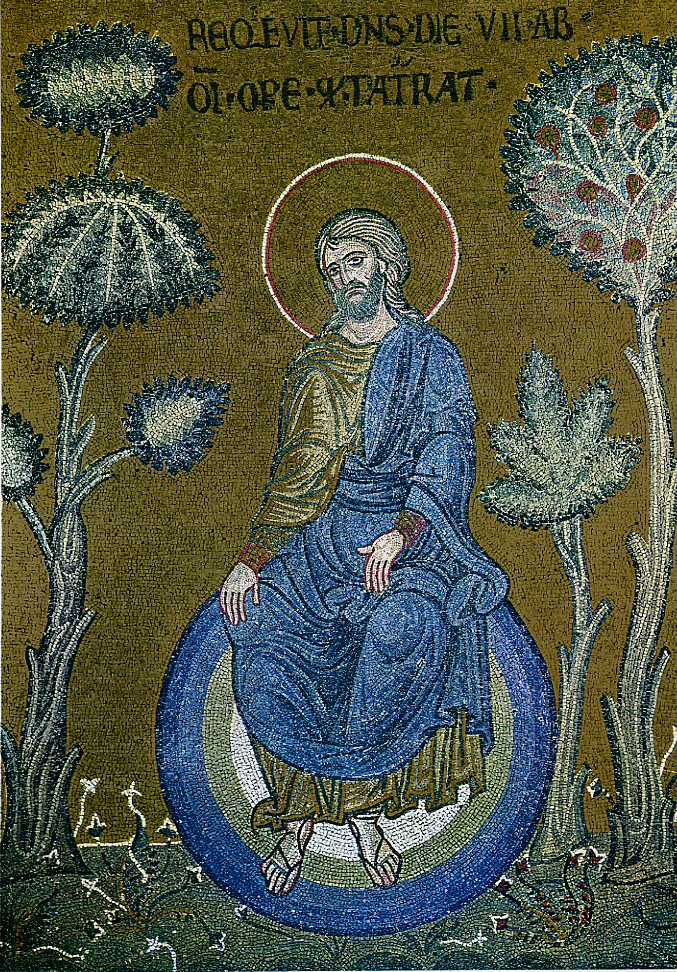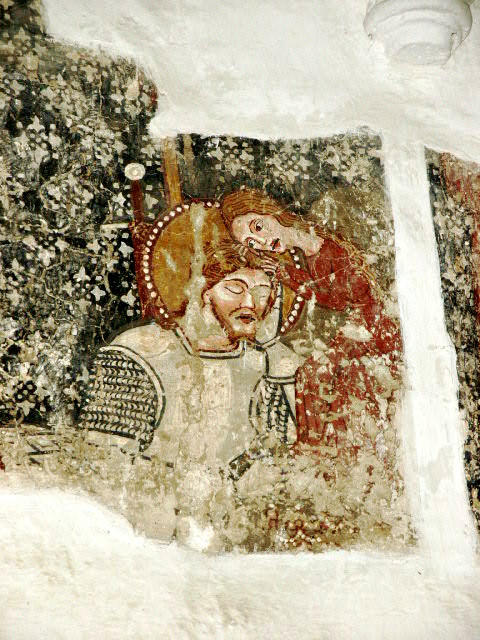|
Socinian
Socinianism ( ) is a Nontrinitarian Christian belief system developed and co-founded during the Protestant Reformation by the Italian Renaissance humanists and theologians Lelio Sozzini and Fausto Sozzini, uncle and nephew, respectively. It was developed among the Polish Brethren in the Polish Reformed Church between the 16th and 17th centuries, and embraced by the Unitarian Church of Transylvania during the same period. Socinianism is most famous for its unitarian belief but contains a number of other distinctive theological doctrines, such as the denial of divine foreknowledge regarding the actions of free agents and rejection of the pre-existence of Christ. Origins The beliefs of Socinianism date from the wing of the Protestant Reformation known as the Radical Reformation and have their root in the Italian Anabaptist movement of the 1540s, such as the anti-trinitarian Council of Venice in 1550. Lelio Sozzini was the first of the Italian anti-trinitarians to go be ... [...More Info...] [...Related Items...] OR: [Wikipedia] [Google] [Baidu] |
Unitarianism
Unitarianism () is a Nontrinitarianism, nontrinitarian sect of Christianity. Unitarian Christians affirm the wikt:unitary, unitary God in Christianity, nature of God as the singular and unique Creator deity, creator of the universe, believe that Jesus Christ was Divine inspiration, inspired by God in his moral teachings and that he is the Redeemer (Christianity), savior of mankind,. but he is not equal to God himself. Accordingly, Unitarians reject the Ecumenical Councils and ecumenical creeds, and sit outside traditional, mainstream Christianity. Unitarianism was established in order to restore "Restorationism, primitive Christianity before later corruptions set in". Likewise, Unitarian Christians generally reject the doctrine of original sin. The churchmanship of Unitarianism may include Liberal Christianity, liberal Christian denominations, denominations or Unitarian Christian denominations that are more Conservatism, conservative, with the latter being known as Biblical unit ... [...More Info...] [...Related Items...] OR: [Wikipedia] [Google] [Baidu] |
Fausto Sozzini
Fausto Paolo Sozzini (; ; 5 December 1539 – 4 March 1604), often known in English by his Latinized name Faustus Socinus ( ), was an Italian Renaissance humanist and theologian, and, alongside his uncle Lelio Sozzini, founder of the Nontrinitarian Christian belief system known as Socinianism. His doctrine was developed among the Polish Brethren in the Polish Reformed Church between the 16th and 17th centuries, and embraced by the Unitarian Church of Transylvania during the same period. Fausto Sozzini recollected most of his uncle Lelio's religious writings by traveling over again his routes throughout early modern Europe, and systematized his Antitrinitarian beliefs into a coherent theological doctrine. His polemical treatise ''De sacrae Scripturae auctoritate'' (written in the years 1580s and published in England in 1732, with the title ''A demonstration of the truth of the Christian religion, from the Latin of Socinius'') was highly influential on Remonstrant thinkers such ... [...More Info...] [...Related Items...] OR: [Wikipedia] [Google] [Baidu] |
Lelio Sozzini
Lelio Francesco Maria Sozzini (; 29 January 1525 – 4 May 1562), often known in English by his Latinized name Laelius Socinus ( ), was an Italian Renaissance humanist and theologian, and, alongside his nephew Fausto Sozzini, founder of the Nontrinitarian Christian belief system A belief is a subjective attitude that something is true or a state of affairs is the case. A subjective attitude is a mental state of having some stance, take, or opinion about something. In epistemology, philosophers use the term "belief" ... known as Socinianism. His doctrine was developed among the Polish Brethren in the Polish Reformed Church between the 16th and 17th centuries, and embraced by the Unitarian Church of Transylvania during the same period. Life Lelio Sozzini was born and raised in Siena, capital city of the Republic of Siena. His family descended from Sozzo, a banker at Percenna (Buonconvento), whose second son, Mino Sozzi, settled as a notary at Siena in 1304. Mino Sozzi's g ... [...More Info...] [...Related Items...] OR: [Wikipedia] [Google] [Baidu] |
Arianism
Arianism (, ) is a Christology, Christological doctrine which rejects the traditional notion of the Trinity and considers Jesus to be a creation of God, and therefore distinct from God. It is named after its major proponent, Arius (). It is considered Heresy in Christianity, heretical by most modern mainstream branches of Christianity. It is held by a minority of modern denominations, although some of these denominations hold related doctrines such as Socinianism, and some shy away from use of the term Arian due to the term's historically negative connotations. Modern denominations sometimes connected to the teaching include Jehovah's Witnesses, some individual churches within the Churches of Christ (including the movement's founder Barton W. Stone), as well as some Hebrew Roots Christians and Messianic Judaism, Messianic Jews (although many Messianic Jews also follow Nicene Christianity). It is first attributed to Arius (), a Christian presbyter who preached and studied in Ale ... [...More Info...] [...Related Items...] OR: [Wikipedia] [Google] [Baidu] |
Nontrinitarianism
Nontrinitarianism is a form of Christianity that rejects the orthodox Christian theology of the Trinity—the belief that God is three distinct hypostases or persons who are coeternal, coequal, and indivisibly united in one being, or essence (from the Ancient Greek ). Certain religious groups that emerged during the Protestant Reformation have historically been known as antitrinitarian. According to churches that consider the decisions of ecumenical councils final, trinitarianism was definitively declared to be Christian doctrine at the 4th-century ecumenical councils, that of the First Council of Nicaea (325), which declared the full divinity of the Son, and the First Council of Constantinople (381), which declared the divinity of the Holy Spirit. In terms of number of adherents, nontrinitarian denominations comprise a small minority of modern Christians. After the denominations in the Oneness Pentecostal movement, the largest nontrinitarian Christian denominations are the ... [...More Info...] [...Related Items...] OR: [Wikipedia] [Google] [Baidu] |
Pre-existence Of Christ
The pre-existence of Christ asserts the existence of Christ prior to his incarnation as Jesus. One of the relevant Bible passages is John 1 () where, in the Trinitarian interpretation, Christ is identified with a pre-existent divine hypostasis (substantive reality) called the ''Logos'' (Koine Greek for "word"). There are nontrinitarian views that question the aspect of personal pre-existence, the aspect of divinity, or both. More particularly, John 1:15, 18 says: This doctrine is supported in when Jesus refers to the glory that he had with the Father "before the world existed" during the Farewell Discourse.''Creation and Christology: A Study on the Johannine Prologue in the Light of Early Jewish Creation Accounts'' by Masanobu Endo 2002 page 233 also refers to the Father loving Jesus "before the foundation of the world". , , and are passages that are seen as evidence that Paul believed in the pre-existence of Christ. Although the interpretation that these passages ref ... [...More Info...] [...Related Items...] OR: [Wikipedia] [Google] [Baidu] |
Radical Reformation
The Radical Reformation represented a response to perceived corruption both in the Catholic Church and in the expanding Magisterial Protestant movement led by Martin Luther and many others. Starting in Germany and Switzerland in the 16th century, the Radical Reformation gave birth to many radical Protestant groups throughout Europe. The term covers Radical Reformers like Thomas Müntzer and Andreas Karlstadt, the Zwickau prophets, and Anabaptist groups like the Hutterites and the Mennonites. In Germany, Switzerland and Austria, a majority sympathized with the Radical Reformation despite intense persecution. Although the surviving proportion of the European population that rebelled against Catholic, Lutheran and Reformed Churches was small, Radical Reformers wrote profusely, and the literature on the Radical Reformation is disproportionately large, partly as a result of the proliferation of the Radical Reformation teachings in the United States. History Some early forms ... [...More Info...] [...Related Items...] OR: [Wikipedia] [Google] [Baidu] |
Council Of Venice
The Council of Veneto or Synod at Venice 1550 was a meeting in Venice of the anabaptist radicals of Northern Italy. History The Council had been preceded by the antitrinitarian '' Collegia Vicentina'' (Lat. ''Vicenza colloquia'') in Vicenza Vicenza ( , ; or , archaically ) is a city in northeastern Italy. It is in the Veneto region, at the northern base of the Monte Berico, where it straddles the Bacchiglione, River Bacchiglione. Vicenza is approximately west of Venice and e ... in which Lelio Sozzini took a leading role in 1546. In late 1549 or early 1550 Anabaptists began to assemble again in Vicenza. In September 1550 sixty Anabaptist leaders, including 20 or 30 exiles from Switzerland, assembled in Venice. Under the impetus of two followers of Servetus, " Camillo Renato" (Paolo Ricci) and a "Tiziano" (possibly Lorenzo Tizzano) the synod agreed on a set of anti-Trinitarian principles.Roberto De Mattei ''A sinistra di Lutero: sette e movimenti religiosi nell'Euro ... [...More Info...] [...Related Items...] OR: [Wikipedia] [Google] [Baidu] |
Calvinist
Reformed Christianity, also called Calvinism, is a major branch of Protestantism that began during the 16th-century Protestant Reformation. In the modern day, it is largely represented by the Continental Reformed Protestantism, Continental Reformed Christian, Presbyterianism, Presbyterian, Congregationalism, Congregational, and Waldensians traditions, as well as parts of the Calvinistic Methodist, Methodist, Reformed Anglican Church, Anglican (known as "Episcopal" in some regions) and Reformed Baptists, Baptist traditions. Reformed theology emphasizes the Biblical authority, authority of the Bible and the Sovereignty of God in Christianity, sovereignty of God, as well as covenant theology, a framework for understanding the Bible based on God's covenants with people. Reformed churches emphasize simplicity in worship. Several forms of ecclesiastical polity are exercised by Reformed churches, including presbyterian polity, presbyterian, Congregational polity, congregational, ... [...More Info...] [...Related Items...] OR: [Wikipedia] [Google] [Baidu] |
Unitarian Church Of Transylvania
The Unitarian Church of Transylvania (; ), also known as the Hungarian Unitarian Church (; ), is a Nontrinitarian Christian denomination of the Unitarian tradition, based in the city of Cluj, Transylvania, Romania. Founded in 1568 in the Eastern Hungarian Kingdom by the Unitarian preacher and theologian Ferenc Dávid (c. 1520–1579), it is the oldest continuing Unitarian denomination in the world. It has a majority- Hungarian following, and is one of the 18 religious denominations given official recognition by the Government of Romania. The Transylvanian and Hungarian Unitarians represent the only branch of Unitarianism not to have adopted a congregationalist polity, and remains quasi- episcopal; the Irish Non-subscribing Presbyterian Church, a distinct body closely related to Unitarianism, has a presbyterian structure.Paul F. Bradshaw, ''The New SCM Dictionary of Liturgy and Worship'', SCM-Canterbury Press Ltd, London, 2002, p.460. The Unitarian Church of Transylvania is ... [...More Info...] [...Related Items...] OR: [Wikipedia] [Google] [Baidu] |
Protestant Reformation
The Reformation, also known as the Protestant Reformation or the European Reformation, was a time of major theological movement in Western Christianity in 16th-century Europe that posed a religious and political challenge to the papacy and the authority of the Catholic Church. Towards the end of the Renaissance, the Reformation marked the beginning of Protestantism. It is considered one of the events that signified the end of the Middle Ages and the beginning of the early modern period in Europe. The Reformation is usually dated from Martin Luther's publication of the '' Ninety-five Theses'' in 1517, which gave birth to Lutheranism. Prior to Martin Luther and other Protestant Reformers, there were earlier reform movements within Western Christianity. The end of the Reformation era is disputed among modern scholars. In general, the Reformers argued that justification was based on faith in Jesus alone and not both faith and good works, as in the Catholic view. In the ... [...More Info...] [...Related Items...] OR: [Wikipedia] [Google] [Baidu] |





